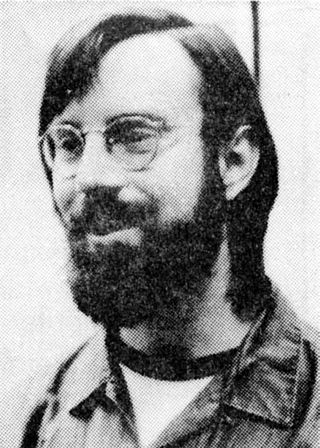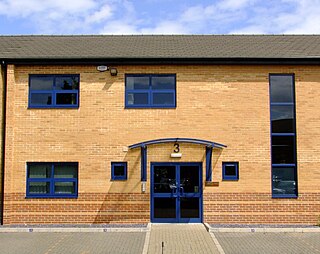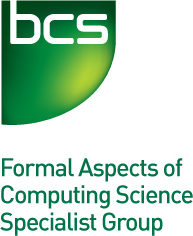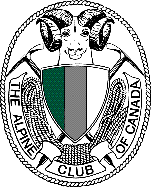
Li-Chen Wang is an American computer engineer, best known for his Palo Alto Tiny BASIC for Intel 8080-based microcomputers. He was a member of the Homebrew Computer Club and made significant contributions to the software for early microcomputer systems from Tandy Corporation and Cromemco. He made early use of the word copyleft, in Palo Alto Tiny BASIC's distribution notice "@COPYLEFT ALL WRONGS RESERVED" in June 1976.

The Homebrew Computer Club was an early computer hobbyist group in Menlo Park, California, which met from March 1975 to December 1986. The club had an influential role in the development of the microcomputer revolution and the rise of that aspect of the Silicon Valley information technology industrial complex.
Computer magazines are about computers and related subjects, such as networking and the Internet. Most computer magazines offer advice, some offer programming tutorials, reviews of the latest technologies, and advertisements.
"An Open Letter to Hobbyists" is a 1976 open letter written by Bill Gates, the co-founder of Microsoft, to early personal computer hobbyists, in which Gates expresses dismay at the rampant software piracy taking place in the hobbyist community, particularly with regard to his company's software.

Bob Wallace was an American software developer, programmer and the ninth Microsoft employee. He was the first popular user of the term shareware, creator of the word processing program PC-Write, founder of the software company Quicksoft and an "online drug guru" who devoted much time and money into the research of psychedelic drugs.
Steve Jackson is a British game designer, writer, game reviewer and co-founder of UK game publisher Games Workshop.

The Radio Society of Great Britain (RSGB) is the United Kingdom's recognised national society for amateur radio operators. The society was founded in 1913 as the London Wireless Club, making it one of the oldest organisations of its kind in the world. Through its work, it represents the interests of the UK's 80,000 licensed radio amateurs in the United Kingdom and certain dependent territories of the United Kingdom at the International Amateur Radio Union, acting as a medium for communication between the licensed operators and the UK government.

The Royal Australasian Ornithologists Union (RAOU), now part of BirdLife Australia, was Australia's largest non-government, non-profit, bird conservation organisation. It was founded in 1901 to promote the study and conservation of the native bird species of Australia and adjacent regions, making it Australia's oldest national birding association. In 1996, the organisation adopted the trading name of Birds Australia for most public purposes, while retaining its original name for legal purposes and as the publisher of its journal, the Emu. In 2012, the RAOU merged with Bird Observation & Conservation Australia to form BirdLife Australia.

Forrest M. Mims III is an American amateur scientist, magazine columnist, and author of Getting Started in Electronics and Engineer's Mini-Notebook series of instructional books that were originally sold in Radio Shack electronics stores and are still in print. Mims graduated from Texas A&M University in 1966 with a major in government and minors in English and history. He became a commissioned officer in the United States Air Force, served in Vietnam as an Air Force intelligence officer (1967), and a Development Engineer at the Air Force Weapons Laboratory (1968–70).

BCS-FACS is the BCS Formal Aspects of Computing Science Specialist Group.

The Institute of Space Technology is a public university located in Islamabad, Pakistan. It is focused on the study of astronomy, aerospace engineering, avionics engineering and astronautics.

The Alpine Club of Canada (ACC) is an amateur athletic association with its national office in Canmore, Alberta that has been a focal point for Canadian mountaineering since its founding in 1906. The club was co-founded by Arthur Oliver Wheeler, who served as its first president, and Elizabeth Parker, a journalist for the Manitoba Free Press. Byron Harmon, whose 6500+ photographs of the Canadian Rockies in the early 20th century provide the best glimpse of the area at that time, was official photographer to the club at its founding. The club is the leading organization in Canada devoted to climbing, mountain culture, and issues related to alpine pursuits and ecology. It is also the Canadian regulatory organization for climbing competition, sanctioning local, regional and national events, and assembling, coaching and supporting the national team.
The Midwest Military Simulation Association (MMSA) is a group of wargamers and military figurine collectors active during the late 1960s and 1970s.

Donald F. Featherstone was a British author of more than forty books on wargaming and military history.

The Boston Computer Society (BCS) was an organization of personal computer users, based in Boston, Massachusetts, U.S., that ran from 1977 to 1996. At one point, it was the largest such group in the world, with regular user group meetings, many publications, permanent offices in Boston, and hosting major product announcements, including the East Coast release of the Apple Macintosh in 1984.

The British Amateur Television Club (BATC) is the world's largest television technology club; it has members in the UK and all around the world and is a non-profit making club run by an elected committee of volunteers for the benefit of its members. Membership is open to all who are interested in television, amateur or professional, indeed the club has many members who work for major broadcasting companies.

The Hobby Computer Club is a Dutch computer club, now based in Haarlem, the Netherlands. It was established on April 27, 1977, by a small group of people near the town of Leiden. It grew to become a nationally significant club of over 200,000 members in 2003.

The Military Wireless Museum is a private museum operated from Kidderminster, Worcestershire which displays a collection of military wireless equipment from around the world. It developed from the private collection of Ben Nock and marks the importance of wireless communications in the UK and around the globe during World War II and later years.

Byte was a microcomputer magazine, influential in the late 1970s and throughout the 1980s because of its wide-ranging editorial coverage.
The Council for Educational Technology was set up in 1967 by the Department of Education and Science in the UK. Initially it consisted of a large council of experts with a small administrative team whose purpose was to "advise educational services and industrial training organisations on the use of audio visual aids and media" but it quickly became more than this, developing projects, producing an academic journal BJET and advising government on setting up major computer aided learning programmes. It was amalgamated with the Microelectronics Education Support Unit (MESU) in 1989 to form the National Council for Educational Technology.















